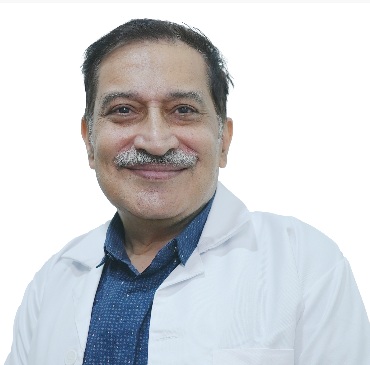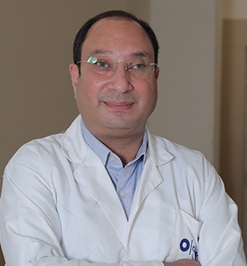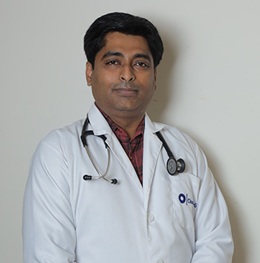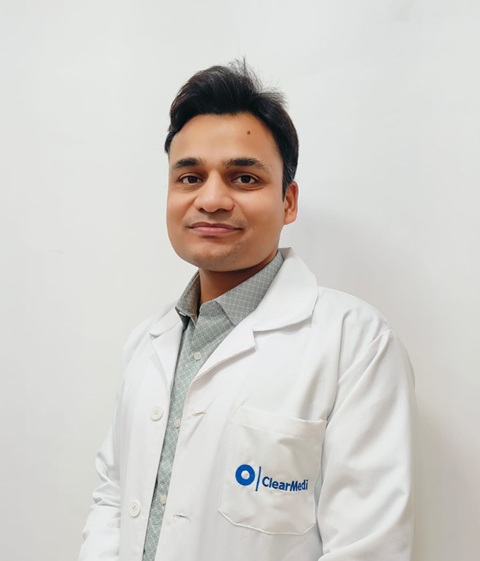Shoulder Arthroscopy - Procedure, Benefits and Recovery

Treatment Duration
30 Minutes
------ To ------45 Minutes
Treatment Cost
₹ 45,000
------ To ------₹ 2,00,000

Table of Contents
- What is Shoulder Arthroscopy?
- What are the Benefits of Shoulder Arthroscopy?
- Who needs Shoulder Arthroscopy?
- How is Shoulder Arthroscopy done?
- What to Expect Before the Surgery?
- What Can You Expect on the Day of the Surgery?
- What Can You Expect During the Surgery?
- What Can You Expect After the Surgery?
- What are Risks and Complications after Shoulder Arthroscopy?
You can check Shoulder Arthroscopy Cost here.
What is Shoulder Arthroscopy?
Shoulder arthroscopy or impingement surgery is a minimally invasive technique to diagnose and treat shoulder problems. It is an outpatient procedure to treat rotator cuff tears or shoulder impingement. The surgeon inserts a small camera called an arthroscope through a tiny incision into your skin. The camera projects images of your shoulder joint to examine the source of the injury.
Shoulder Arthroscopy Videos by HexaHealth
Expert Doctors (10)
NABH Accredited Hospitals (10)


What are the Benefits of Shoulder Arthroscopy?
- Less pain
- Increased strength
- Shoulder strength
- Ease in moving and lifting the shoulder
- Quick recovery
- Less collateral tissue damage
- Reduced risk of infection
- Reduced blood loss
Who needs Shoulder Arthroscopy?
Surgeons perform shoulder arthroscopy to diagnose and treat shoulder pain that has not been improved by nonsurgical treatments. The causes of this pain include:-
- Frozen shoulder
- Bone spurs
- Labrum tears
- Bicep tendons injuries
- Rotator cuff tears
- Osteoarthritis
- Shoulder impingement
- Shoulder instability
How is Shoulder Arthroscopy done?
During the arthroscopy procedure, the surgeon:-
- Make a small incision in your shoulder and insert a tiny camera (arthroscope) into the incision to project images of your shoulder on a video screen.
- Examine the tissue of your shoulder through these images and diagnose the problem.
- Makes one to three small incisions to insert other instruments and remove the damaged tissue.
- Closes the incision with stitches and puts a bandage to cover the wound.
Apart from shoulder arthroscopy, your surgeon can perform the following repairs for specific shoulder problems:-
- Rotator cuff repair: It is a treatment for a torn tendon in the shoulder joint, used to reattach a torn rotator cuff.
- Surgery for impingement syndrome: The procedure is used to clean out the inflamed or damaged tissue above the shoulder joint.
- Surgery for shoulder instability: The surgery is used to treat a torn labrum in the shoulder joint.
Please Note: The procedure selection is based on your medical condition and your surgeon’s opinion.
What to Expect Before the Surgery?
- Before shoulder arthroscopy, you will consult an anesthesiologist for a pre-anaesthetic checkup.
- The doctor will inquire about your medical history and current medications.
- Before the procedure, you need to stop taking certain medicines, like blood thinners.
- To check your health before the surgery, your doctor will conduct tests like a chest X-ray, blood tests, and electrocardiogram.
- The healthcare provider will ask you to stop eating or drinking after midnight, the night before the surgery.
- He/she will then explain to you about the surgical procedure and the hospital stay. Furthermore, they will inform you about the estimated cost of the surgery and the insurance formalities.
What Can You Expect on the Day of the Surgery?
- On the day of the surgery, the hospital staff will ask you to sign the consent formalities.
- A nurse will inform you about the change of clothes and removal of jewellery and non-permanent dentures.
- If needed, they will then trim or shave the hair in your surgical site.
- After recording your last meal, your doctor will give you medication to be taken with a sip of water.
- The team will monitor your vitals, including heart rate, breathing, and blood pressure, and shift you to the OT room.

What Can You Expect During the Surgery?
- Once in OT, you will be positioned on the operating table in one of the following positions:-
- Beach chair position: A semi-seated position similar to sitting in a reclining chair
- Lateral decubitus position: Patient lies on their side
- Someone from the medical team will start an IV line in your arms and place your arm in a holding device to keep it still.
- The nursing staff will clean the surgical site with an antiseptic solution and give you general or regional anaesthesia.
- Next, the surgeon will inject a fluid into your shoulder to inflate your shoulder joint, making it easier for him/her to see the structures of your shoulder.
- After making a small puncture in your shoulder (the size of a buttonhole), he/she will insert an arthroscope into the incision.
- The surgeon then makes small incisions in your shoulder and inserts instruments to repair the damage.
- Once the surgery is finished, the surgical team closes the incisions with stitches and puts a small bandage on the wound.
What Can You Expect After the Surgery?
Recovery at Hospital:-
- After the procedure, the team will shift you to a recovery room to monitor your vitals and anaesthesia effect.
- You will need to recover from the hospital for about 2 to 3 weeks and go home the same day.
- If needed, your healthcare provider will prescribe medication to relieve pain.
- The doctor will provide you with home care and follow-up instructions.
- You will need a family member or friend to drive you home.
Recovery at Home:-
- It will take weeks to months for your shoulder to recover completely.
- You can use ice to relieve pain and swelling.
- Your doctor will advise you to sleep propped up in a chair or bed for a few days after the surgery.
- Furthermore, you will need a sling for the first week after the surgery to protect your shoulder.
- The doctor will also recommend physical therapy to regain motion and strength in your shoulder.
First Follow-Up Appointment
At discharge, your healthcare professional will give you a first follow-up appointment 10 to 14 days after the surgery. During the visit, he/she will remove the sutures, examine your recovery, and provide further follow-up instructions.
What are Risks and Complications after Shoulder Arthroscopy?
Call your healthcare professional if you experience the following symptoms:-
- Fever
- Pain that does not improve with medication
- Increased swelling
- Tingling or numbness
- Discharge of discoloured and smelly fluid from the wound
More Treatment options
Last Updated on: 6 November 2023
Author
HexaHealth Care Team
HexaHealth Care Team brings you medical content covering many important conditions, procedures falling under different medical specialities. The content published is thoroughly reviewed by our panel of qualified doctors for its accuracy and relevance.
Latest Health Articles



























